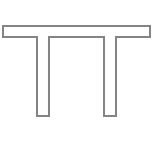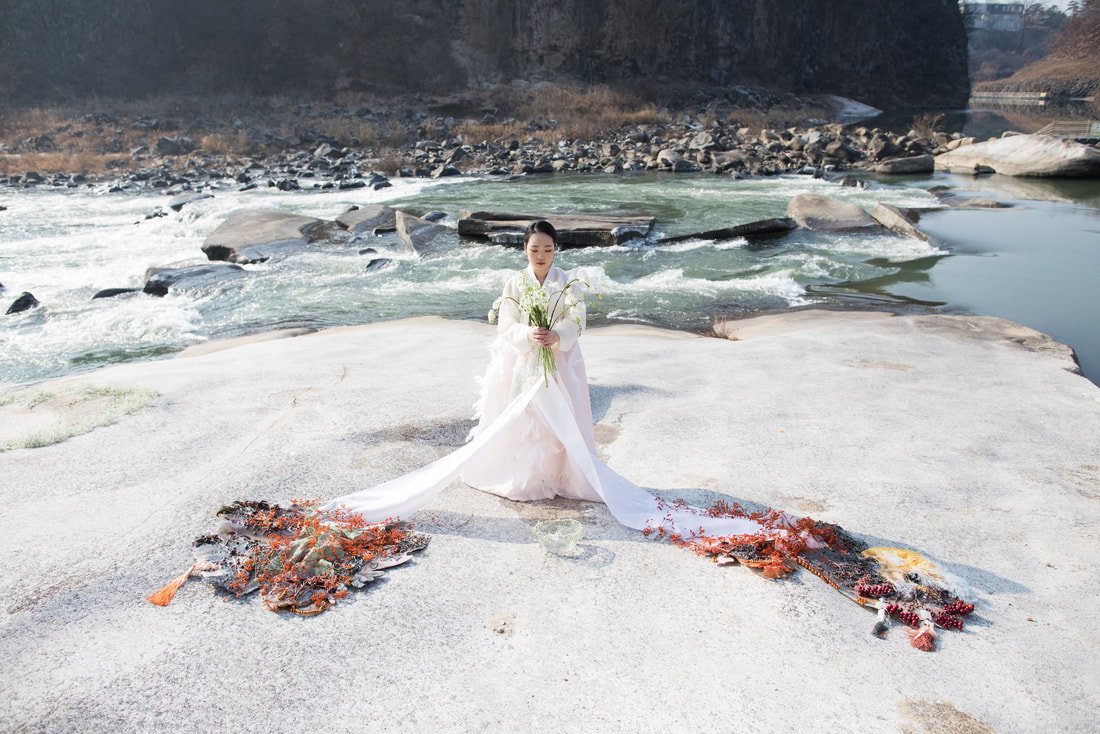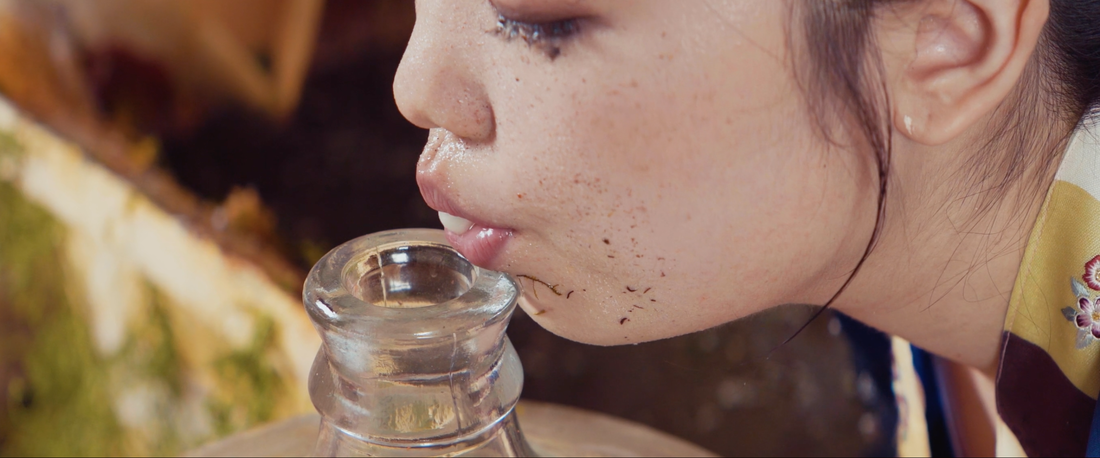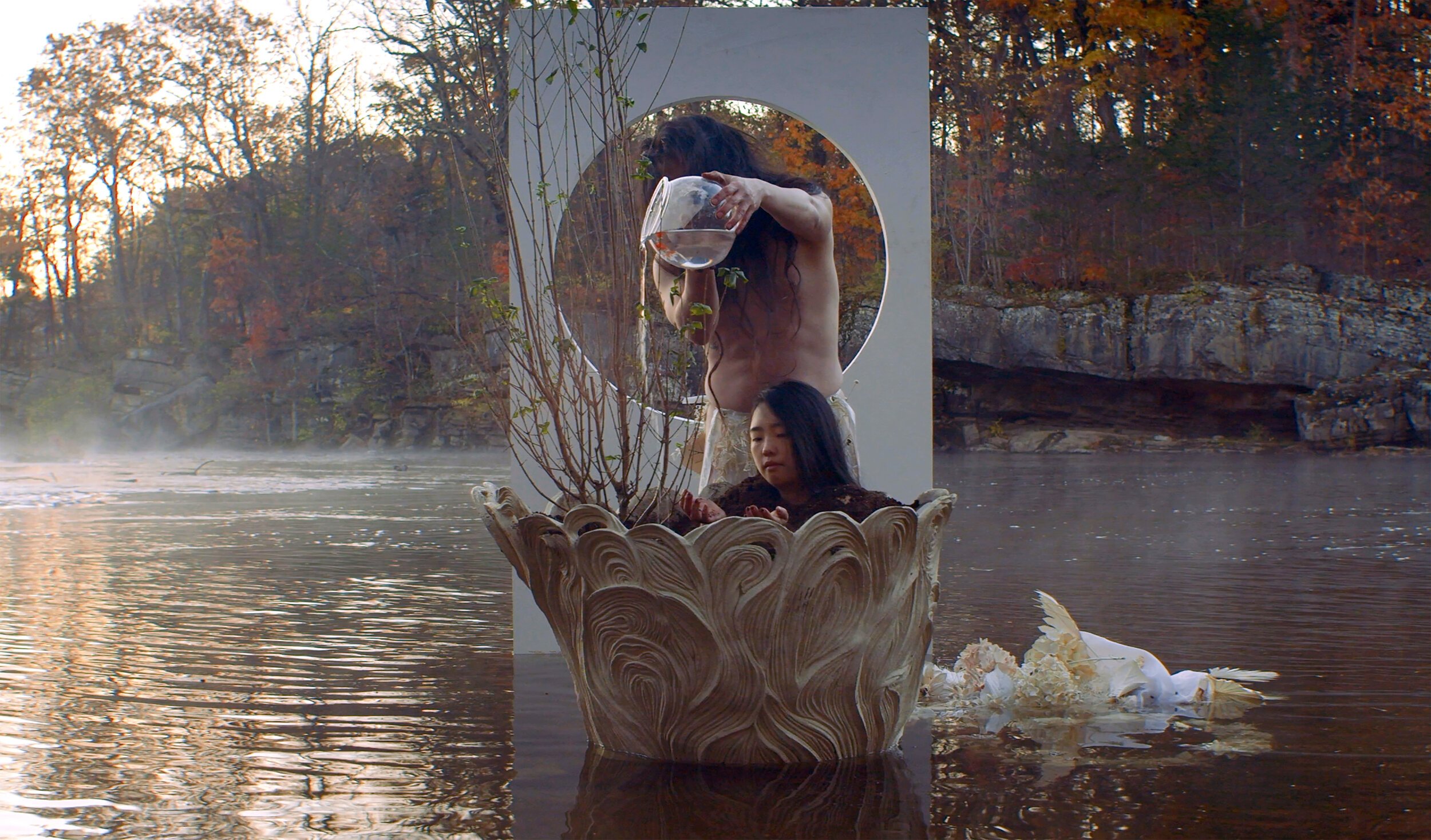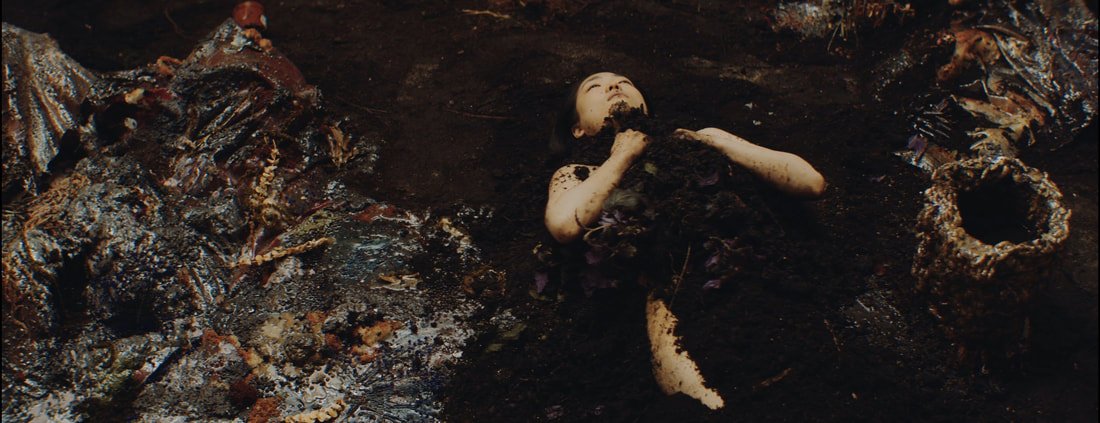Through performance-based film, Ayoung Yu explores Korean folk traditions and spiritual practices. Passed on generationally, they connect her to her family and to a land whose absence she feels palpably. However, she is not faithful to the historical canon. Her work aims to transgress older traditions, regenerating them within queer, diasporic contexts.
Her films document performances which distill movements from ancestral rituals and develop new choreographies reflecting collective and personal experiences, specifically of Asian American communities. Performances are meditations on belonging, sexuality, trauma, and migration. She films in spaces ranging from immersive installations to psychologically charged landscapes. She creates hyperbolic environments made of silk, oil, flowers and plants, water, and soil; they are incubators birthing new rituals. She also intervenes in spaces already laden with meaning— family burial mounds, natural sanctuaries, the demilitarized zone bordering North Korea and South Korea— with sculptures reimagining sacred objects and altars.
Using the language of her heritage, she constructs new narratives. She appropriates visual cues and materials from her upbringing to address loss and renewal of hope. She questions her role in continuing to pass on history and culture and look to methods of disruption and transformation.
